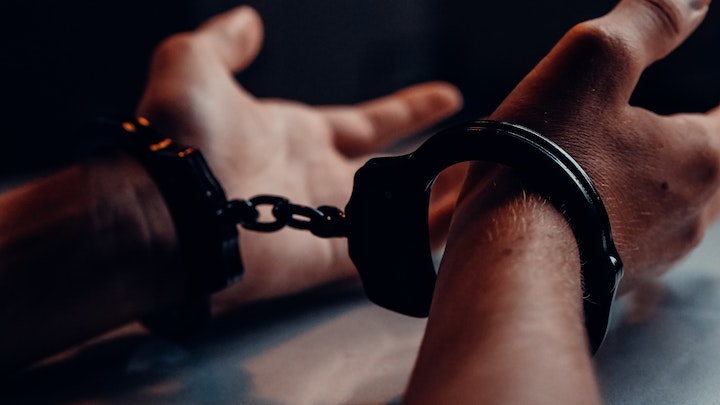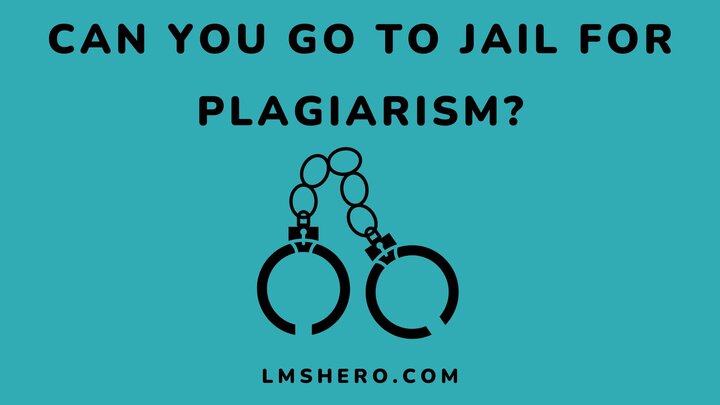Plagiarism has been an issue in the writing world for years. While technology has enhanced its spread, it is also the primary way of detecting it. The practice is unethical and can make you go to jail.
Students who engage in plagiarism usually face penalties and may not be expelled. Employees, on the other hand, will be punished or get sacked. This may also ruin their career.
In this guide, I will be exposing you to what plagiarism is, the various consequences it attracts, and the best way to prevent it.
What is Plagiarism?

Plagiarism is an unethical practice that involves the deliberate use of someone else’s work (design, report, or research) without acknowledging them.
In other words, it is the act of claiming another person’s intellectual property as yours, which is very wrong!
You are a plagiarist if you:
- Fail to cite quotes or ideas originating from another author.
- Copy a text verbatim.
Why is Plagiarism Punishable?
Different organizations from Universities to research centers see plagiarism as a form of theft (usually born out of laziness). Legally, the act is a copyright violation you can go to jail for.
The truth is, no one wants to collaborate with a thief and as long as your career is linked with such acts:
- Administrations will start to doubt your qualification as an employee.
- Teachers will have no way of knowing where a student is truly lacking.
- Plagiarism can make a company look feeble among competitors.
- These and other reasons are why plagiarism does not go unpunished.
Can You Go to Jail for Plagiarism?
Yes, if you replicate a part of an original research paper or intellectual property that is highly valued by an author, company, or university.
Such work usually addresses relevant issues and projects immense value and reputation. Duplicating any portion of these resources without proper citation or acknowledgment is looking for trouble.
It will be considered an attack and you should look forward to appearing in court. Before using another person’s work in your research, you should thoroughly read the copyright policy associated with such material.
The degree of punishment you will face also depends on the legislation guiding your country.
1. In America and Britain, professional copywriters or journalists can be imprisoned for a year for copyright infringement. If the act earned you money, the sentence can be up to 10 years. There is also an option of a fine which can range from $50,000 to $250,000.
2. In Australia, all forms of plagiarism result in the direct expulsion or dismissal of students or employees respectively. This occurs first before any legal action is considered.
3. Other countries employ either of these tactics or a blend of both forms of punishment.
Non-Legal Consequences of Plagiarism
1. Academic penalties
For students or scholars, there is a general step-by-step approach to punishments:
- The first attempt at plagiarism will result in receiving a low grade (F) with additional lectures on ethics and special classes with a tutor.
- A second attempt will lead to repeating the entire course from scratch.
- Third or more attempts will result in expulsion from the university.
- You can also get blacklisted (this means you will not be accepted by other universities).
2. Stunted creativity
Plagiarism among students is often born out of laziness. As a student, the failure to challenge yourself to create original content from other people’s work will negatively affect your creativity.
3. Poor quality content
When you are not creative, your content will be poor. This is because you have nothing unique or valuable to offer your audience.
Submitting and publishing plagiarized work will also hurt your portfolio and that of your employer (the company). If not carefully handled, it may result in getting you blacklisted. You can even go to prison.
4. Depletes authority level & ranking on search engines
If your organization makes money from blogs or articles, producing only high-quality content has to be a routine for all employees.
Failure to provide unique content will affect your website ranking and authority level. Search engines like Google and Bing are only interested in valuable content.
They also have a large database of published content they can match your content with to detect plagiarism. Once the assessment turns out positive for plagiarism, your level of traction depletes.
How to Avoid Plagiarism
Plagiarism is easy to avoid but first, you must know what it means. Now that you know, you can avoid this practice by engaging in proper quotation or citation. You should also scan your content via plagiarism checkers.
Citation/paraphrasing/quotation
Citation, paraphrasing, and quotation are concepts that can help you to effectively avoid plagiarism. This method may require you to flex your creativity muscles but will protect you from legal sanctions of copyright infringement.
The general steps to effective paraphrasing include:
1. Understand the original text
If you are interested in citing someone else’s text in your content, you must fully understand what the text is all about. This way, you can easily interpret it in your own words without worrying about plagiarism.
2. Compare both versions
After writing down your version, you have to compare it with the original text. Comparison helps you assess the information value in both contents and decide if it is accurate or requires slight modifications.
3. Cite your sources
After confirming that your (paraphrased) version is good to go, you must not forget to cite your source. Citations usually contain the name of the author of the original text, the name of the book, and the date it was published.
4. Use quotations
A quotation is a way of telling your audience that you are introducing someone else’s idea into your content and giving them the credit they deserve. The danger with quotations is that they should not form a large portion of your paper. Standard practices recommend that they should not form more than 5-10% of your content.
What are the effective plagiarism checkers available?
Checkers are applications that scan your content and compare them with their database of existing content. This comparison helps in detecting duplicate content, leaving you with the choice to make adjustments.
There are quite a good number of them out there but they are not free. You have to pay to enjoy their services.
1. Grammarly plagiarism checker
This checker is only available for people on Grammarly’s premium plan. It offers grammatical suggestions alongside plagiarism checks.
Key features
- It allows for unlimited checks.
- Provide the link to the source of your plagiarism.
- Features plagiarism percentage.
- Allows for the import of various file formats.
- It is very accurate and has a business version.
2. Copyscape
Copyscape is another excellent plagiarism checker that lets you copy your content’s URL and check for plagiarism.
Key features
- You can index content online.
- It also features side-by-side comparisons.
- Very accurate and user-friendly.
- Gives room for filtered searches.
3. Plagiarism checker X
Plagiarism Checker X is rated the student’s best friend because it is great at scanning scholarly content for plagiarism.
Key features
- Ensures full-time data privacy.
- Excellent customer support.
- Allows for the importation of different file formats.
- Support different languages.
FAQs
What is the punishment for plagiarism?
The punishment for plagiarism can range from repeating a course to going to jail.
Whatever your status is at the time of being guilty of the act will determine which punishment you get.
Can you get kicked out of college for plagiarism?
Yes, you can, especially after being corrected and punished severely for the act.
Who is hurt when you plagiarize?
Plagiarism basically hurts everyone.
It hurts you, the organization you work for, original owner(s) of the material, to name a few.
What percent of plagiarism is allowed?
To be safe, ensure your content is at least 80% authentic.
You can use Grammarly’s plagiarism checker for this.
How do schools know if you plagiarized?
Most institutions use plagiarism checkers to detect plagiarism.
This is because this software has a large database of already published content and can easily scan your content for anything relating to its database.
To Wrap Up
So, can plagiarism take you to jail? Yes but it depends on your status and severity. For students, going to jail is rarely an option. Expulsion from the university is likely the worst that can happen.
However, for writing professionals like journalists or authors, your career may be at stake. It becomes more severe if you make money from such content. You should be looking at 1 to 10 years imprisonment with or without the option of a fine.
To avoid plagiarism, you must know the difference between paraphrasing and plagiarism and also learn to acknowledge external input in your work.
I hope you found this article helpful. Thanks for reading.






